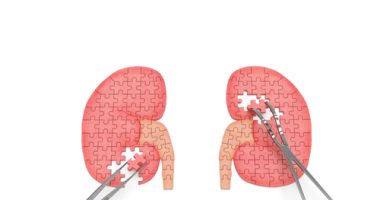New Look at Old Data Supports Bardoxolone Methyl as Kidney Disease Treatment, Reata Reports

Evidence suggesting that bardoxolone methyl can delay kidney failure has surfaced in a re-analysis of data from a clinical trial in diabetics that was terminated over safety concerns, Reata Pharmaceuticals reports.
The original analysis of the Phase 3 BEACON clinical trial results indicated that the treatment had no effect on end-stage kidney disease.
Reata is also testing the compound in a separate clinical trial as a potential treatment for Alport syndrome, whose hallmark is kidney failure.
An article covering the re-analysis, which appeared in the American Journal of Nephrology, dealt with a fresh assessment of the BEACON trial (NCT01351675) data. The study covered type 2 diabetes patients with severe chronic kidney disease.
Researchers titled the piece “Bardoxolone Methyl Improves Kidney Function in Patients with Chronic Kidney Disease Stage 4 and Type 2 Diabetes: Post-Hoc Analyses from Bardoxolone Methyl Evaluation in Patients with Chronic Kidney Disease and Type 2 Diabetes Study.”
“Though BEACON was discontinued early, it was not a failed study, as it yielded critical insights into bardoxolone methyl’s clinical profile,” Dr. Glenn Chertow, chief of the Stanford University School of Medicine’s Division of Nephrology, said in a press release. He was a co-author of the study.
An article in The New England Journal of Medicine in 2013 reported that bardoxolone methyl-treated diabetes patients in the trial were at 83 percent higher risk of experiencing heart failure.
Later analyses indicated that it was patients with very specific characteristics who drove this risk. They had been hospitalized for heart failure earlier, and had higher levels of a heart failure marker at the start of the trial. A build-up of fluid soon after their treatment began triggered heart failure.
Excluding these patients from further trials, Reata relaunched the therapy’s development. It is now being explored as an Alport treatment in the global Phase 2/3 CARDINAL trial (NCT03019185).
Scientists used a composite measure of kidney disease progression in their new analysis. The components included a 30 percent or greater decline in patients’ estimated kidney filtration rate, a filtration rate below a certain cut-off value, and patients experiencing end-stage kidney disease events.
The composite barometer indicated that bardoxolone methyl-treated patients were half as likely to experience these poor outcomes. The finding supports the idea that the treatment preserves kidney function and may delay the start of kidney failure, Reata said.
“In this post-hoc analysis, we employed an expanded renal [kidney] composite endpoint and showed that bardoxolone methyl reduced (by half) the likelihood of developing an adverse renal event,” Chertow said.
“We believe the pharmacology of bardoxolone may be broadly relevant to many forms of kidney disease, not just diabetic CKD [chronic kidney disease],” added Colin Meyer, Reata’s Chief Medical Officer, underscoring the insight’s value to the continuing development of bardoxolone methyl for Alport and other forms of kidney disease.







Comments